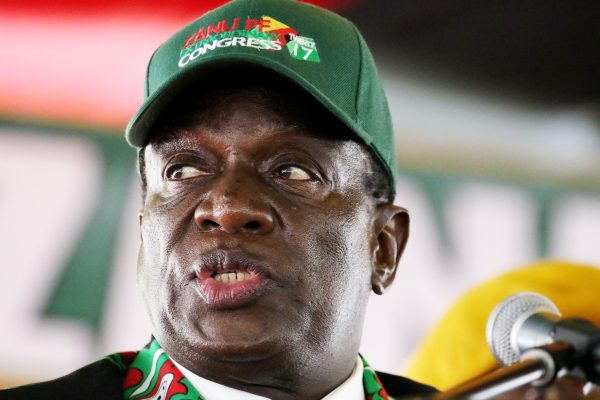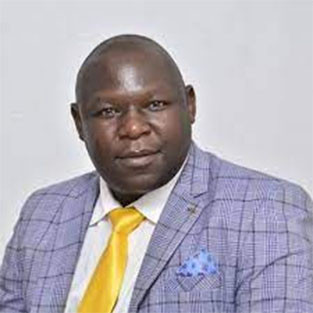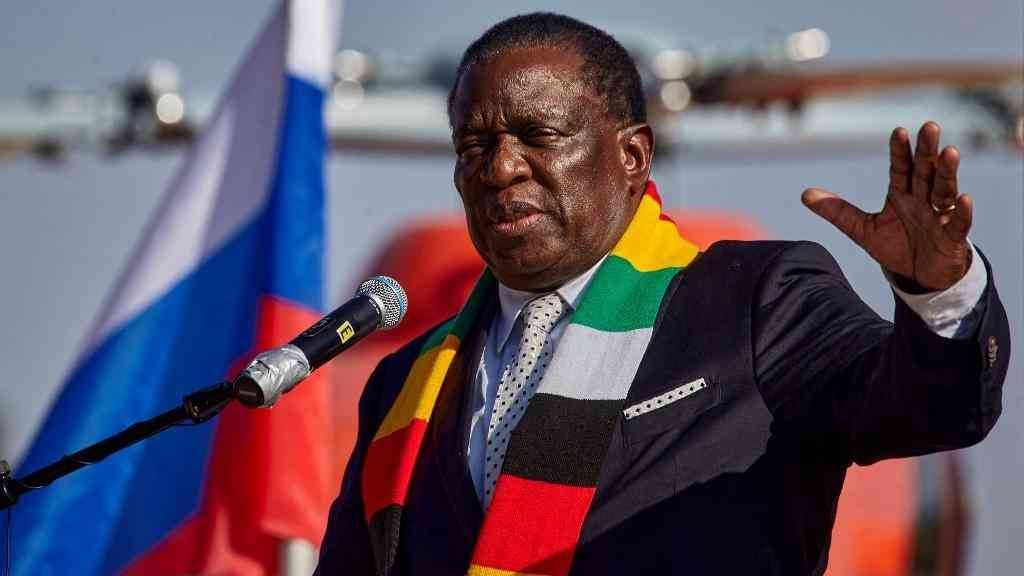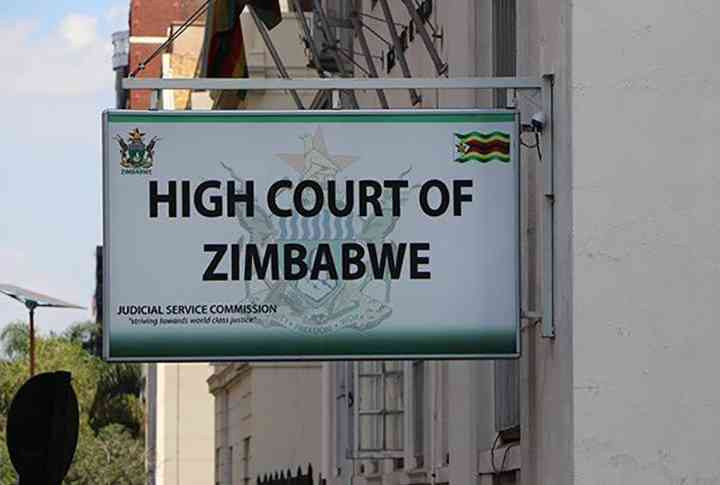
By Everson Mushava/Nkululeko Sibanda
President Emmerson Mnangagwa (pictured below) is today expected to announce the next steps the government will take to contain the spread of coronavirus as the current 21-day national lockdown comes to an end.
Zimbabwe has been under lockdown since March 30 with tough restrictions on the movement of people and a partial shutdown of the economy in a bid to slow down the spread of the virus.
Cases of the flu-like disease continued to increase during the lockdown with 24 people testing positive of the disease, also known as Covid-19, by Friday with three fatalities.
Calls, however, have been growing from the business community to relax the regulations enforcing the lockdown amid fears a prolonged closure of businesses will collapse the fragile economy.
Government officials were unwilling to shed light on the direction the country would take after the initial phase of the lockdown with Mnangagwa’s spokesperson George Charamba hinting on social media that the shutdown would continue.
Charamba said Zimbabwe was likely to follow the trend set by other African countries that recently extended their own lockdowns.
Zimbabwe’s neighbour South Africa last week extended its lockdown by two weeks even as it recorded some limited success in fighting the spread of the disease.
- Chamisa under fire over US$120K donation
- Mavhunga puts DeMbare into Chibuku quarterfinals
- Pension funds bet on Cabora Bassa oilfields
- Councils defy govt fire tender directive
Keep Reading
In response to anxious Zimbabweans on social media on why the government had not pronounced itself on the lockdown, which expires at midnight, Charamba said a decision had been taken to focus exclusively on Independence Day celebrations.
“Government at the highest level will pronounce itself on the matter [today],” Charamba said using his pseudonym Jamwanda.
“Today is Independence Day and a decision has been taken to allow for maximum focus on this important day, albeit within the limit set by the lockdown itself.
“In arriving at a decision, government will obviously be guided by the concrete situation in the country, region and the world.
“Zimbabwe’s infection cases have risen to 24, Africa’s infections cases have gone beyond 18 000, worldwide infections have breached the two million mark.”
Mnangagwa had been expected to make an announcement on the lockdown when he delivered his Independence Day address yesterday morning, but he avoided the issue.
Information ministry secretary Nick Mangwana, who also confirmed that the president would make a pronouncement today, had on Friday hinted that the lockdown would be extended beyond the 21 days.
“Covid-19 has just begun to attack Zimbabwe and the spike is beginning to show an upward trend,” Mangwana said on Twitter.
“We introduced a lockdown some two weeks ago, but we are realising the pandemic is now more serious than at the time we introduced the lockdown.”
The Zimbabwe Association of Doctors for Human Rights (ZADHR) yesterday said the country was not ready for the lockdown to be relaxed given the spike in the number of people that had tested positive for Covid-19.
“We advise for cautious and evidence-based decision-making by the central government on whether or not to lift the lockdown,” ZADHR said.
“Any extension of the lockdown must be predicated on extensive screening and testing, and urgent rehabilitation of the existing service delivery infrastructure to increase preparedness for any massive upsurge in cases of Covid-19.”
Itai Rusike, the Community Working Group on Health executive director, said Mnangagwa’s decision on the lockdown must be evidence-based.
“The president’s decision should be informed by obtaining evidence from the facts on the ground, by what is ethical and by making clear the trade-offs including between immediate and longer term challenges and outcomes,” Rusike said.
“Zimbabwe, already overwhelmed by demands, needs core measures to support decision-making and regular strategic review and communication of the pandemic progression, its management and the impact of the lockdown intervention.”
He added: “These community impacts may if poorly managed translate into their own negative health impacts in under-nutrition, diseases of poverty, mental disorders, violence and suicide.”
Business leaders said the measures should be sensitive to the economic situation in the country and the need to save lives.
Harare-based businessman and past president of the Zimbabwe National Chamber of Commerce Oswell Binha said business players were eager to resume operations as continued delays would negatively affect them.
“As business players, all we want to do is to go back to work yesterday,” Binha said.
“We believe that government has the capacity to take critical steps that will ensure that workers are protected during the period of Covid-19, hence keeping employees away from work becomes an undesirable situation.”
He said without government guarantees to exempt business from paying tax during the lockdown, and no remedy on company’s ballooning wage bill against zero production, industry would want the lockdown to end.
Binha, however, warned that a rushed decision to lift the lockdown would open the country to a much bigger cycle of infections.
Zimbabwe Congress of Trade Unions president Peter Mutasa said the tough restrictions had worsened the plight of workers.
Henry Ruzvidzo, the Confederation of Zimbabwe Industries president, said they expected regulations affecting operations of companies to be relaxed.
“The pandemic response has to be guided by many factors including country context,” he said.
“Preservation of life has to take precedence. The World Health Organisation guidelines, which emphasise capacity to test, isolate, treat and trace every contact, have to be considered.
“The fragile state of the economy and the limited fiscal and donor space for business revival have to be a factor in mapping the response strategy.
“We believe there is room to expand the range of businesses that are able to operate, but not a complete lift of the lockdown as capacity to test and maintain social distancing in a number of economic activities needs further work.”
David Coltart, lawyer and top opposition MDC Alliance official, said delays by Mnangagwa to make a pronouncement on the lockdown would adversely affect businesses.
“Mnangagwa has stated that his government is going to review that policy and has suggested he will make a decision on the 20th April, but if it is left that late that will only cause unnecessary confusion,” Coltart wrote on his blog.
“Businesses need to be able to plan ahead and government should announce its intentions. It will cause chaos if government waits until the weekend, or after the weekend, to announce its decision,” said Coltart.
“Be that as it may, any decision to end or extend the lockdown is fraught with problems.
“On the one hand, it is clear that infections are rising and that Zimbabwe may only be at the early stages of its total number of infections, if statistics of other countries in the world are anything to go by.
“On the other hand, it is clear that in many respects, the lockdown is not working in Zimbabwe, and in any event is unsustainable.”
He said lockdowns may work in countries with resilient economies, unlike in Zimbabwe where there was a risk that more people would die of hunger than the virus itself.









